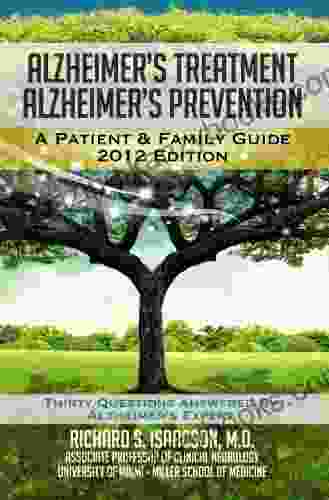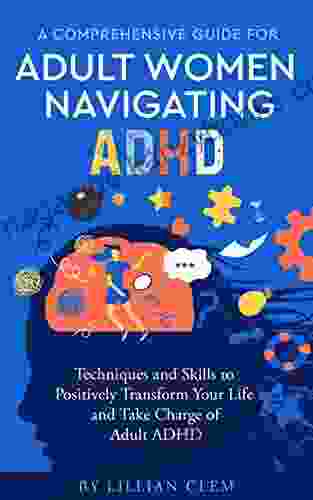Alzheimer Treatment and Prevention: Unlocking the Secrets to a Healthier Brain

Alzheimer's disease, the most common form of dementia, is a devastating neurodegenerative disFree Download that affects millions of individuals worldwide. While there is currently no cure, significant progress has been made in understanding the causes, risk factors, and potential treatments for this debilitating condition. This article will delve into the latest advancements in Alzheimer's treatment and prevention, offering hope and empowerment for those affected by cognitive decline.
Understanding Alzheimer's Disease
Alzheimer's disease is characterized by the progressive degeneration of brain cells, leading to a decline in memory, cognition, and behavior. The disease typically develops in older adults, with the risk increasing significantly after the age of 65. It is believed that a combination of genetic, environmental, and lifestyle factors contribute to the development of Alzheimer's disease.
4.2 out of 5
| Language | : | English |
| File size | : | 332 KB |
| Text-to-Speech | : | Enabled |
| Screen Reader | : | Supported |
| Enhanced typesetting | : | Enabled |
| Word Wise | : | Enabled |
| Print length | : | 276 pages |
| Lending | : | Enabled |
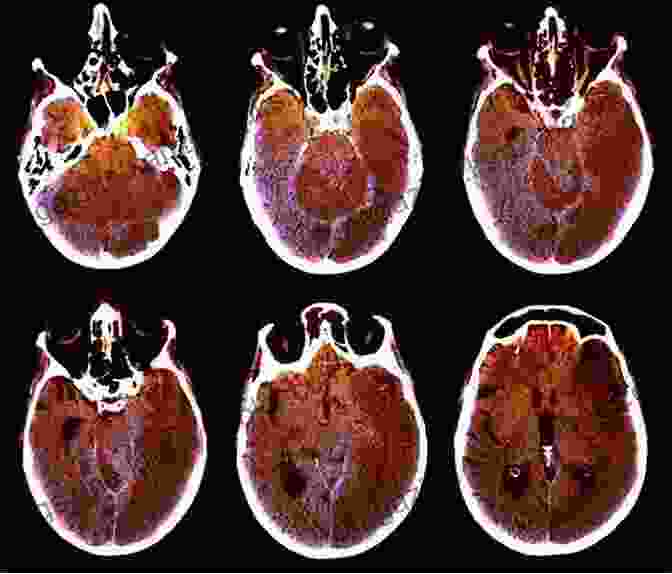
Causes and Risk Factors
While the exact cause of Alzheimer's disease is not fully understood, research has identified several genetic and environmental factors that increase the risk of developing the condition. These include:
* Genetics: Certain genetic mutations, such as the APOE-e4 allele, have been linked to an increased risk of Alzheimer's disease. * Age: The risk of Alzheimer's disease increases significantly with age, with most cases occurring in individuals over the age of 65. * Family history: People with a family history of Alzheimer's disease are at a higher risk of developing the condition. * Head injuries: Traumatic brain injuries can increase the risk of Alzheimer's disease. * Lifestyle factors: Certain lifestyle factors, such as poor diet, lack of exercise, and smoking, may contribute to the development of Alzheimer's disease.
Symptoms and Diagnosis
The symptoms of Alzheimer's disease typically appear gradually and worsen over time. Early signs may include:
* Memory loss that affects everyday activities * Difficulty with familiar tasks, such as managing finances or following instructions * Problems with language, such as struggling to find the right words or understanding speech * Changes in mood or behavior, such as becoming withdrawn, irritable, or anxious
Diagnosis of Alzheimer's disease involves a comprehensive evaluation by a healthcare professional. This may include:
* Medical history and physical examination * Cognitive testing, which assesses memory, language, and problem-solving abilities * Brain scans, such as MRI or PET scans, which can reveal changes in brain structure and function
Treatment Options
While there is currently no cure for Alzheimer's disease, there are several medications and therapies available that can help manage symptoms and improve quality of life. These treatments include:
* Cholinesterase inhibitors: These medications increase the levels of acetylcholine, a neurotransmitter that is involved in memory and cognition. * NMDA receptor antagonists: These medications block the activity of a receptor in the brain that is involved in excitotoxicity, a process that can damage brain cells. * Antipsychotics: These medications can help manage behavioral symptoms such as agitation and aggression. * Therapy and counseling: These interventions can provide emotional support, improve communication, and help individuals cope with the challenges of Alzheimer's disease. * Lifestyle modifications: Maintaining a healthy diet, engaging in regular exercise, and avoiding smoking and excessive alcohol consumption can help reduce the risk of Alzheimer's disease and improve overall health.
Prevention Strategies
Although there is no guaranteed way to prevent Alzheimer's disease, there are several lifestyle choices that may reduce the risk of cognitive decline and preserve brain health. These strategies include:
* Regular exercise: Regular physical activity has been shown to improve blood flow to the brain and stimulate the production of neurotransmitters that are essential for memory and cognition. * Healthy diet: Eating a diet rich in fruits, vegetables, and whole grains has been linked to a reduced risk of Alzheimer's disease. * Social engagement: Engaging in social activities, such as volunteering, taking classes, or spending time with loved ones, can help keep the brain active and stimulated. * Mental exercises: Engaging in activities that challenge the mind, such as puzzles, games, or reading, can help strengthen cognitive abilities. * Adequate sleep: Getting sufficient sleep is essential for overall brain health and may help reduce the risk of cognitive decline. * Managing stress: Chronic stress can negatively impact brain function. Finding healthy ways to manage stress, such as exercise, yoga, or meditation, can be beneficial. * Avoiding smoking and excessive alcohol consumption: Smoking and excessive alcohol consumption have been linked to an increased risk of Alzheimer's disease.
Empowering Individuals with Alzheimer's Disease
Living with Alzheimer's disease can be challenging, but there are many ways to empower individuals with the condition and improve their quality of life. These include:
* Creating a supportive environment: Family, friends, and caregivers can play a vital role in supporting individuals with Alzheimer's disease. Providing a safe and loving environment, encouraging participation in meaningful activities, and respecting their dignity can make a significant difference in their well-being. * Respecting and valuing their experiences: Even as cognitive abilities decline, individuals with Alzheimer's disease continue to have unique experiences and perspectives. It is important to listen to their thoughts, feelings, and desires, and to treat them with respect and compassion. * Promoting self-care and independence: As much as possible, encourage individuals with Alzheimer's disease to engage in self-care activities and maintain their independence. This may include assisting with personal hygiene tasks, providing assistive devices, and supporting their involvement in meaningful activities. * Providing respite for caregivers: Caregiving for someone with Alzheimer's disease can be demanding. It is important for caregivers to seek respite care, support groups, or other resources to prevent burnout and ensure their own well-being.
Alzheimer's disease is a complex and challenging condition, but there is reason for hope and empowerment. By understanding the causes and risk factors, exploring available treatments and prevention strategies, and creating a supportive environment for individuals with the condition, we can help improve quality of life and foster a sense of well-being. Continued research and advancements in Alzheimer's treatment and prevention hold promise for a brighter future for those affected by cognitive decline.
4.2 out of 5
| Language | : | English |
| File size | : | 332 KB |
| Text-to-Speech | : | Enabled |
| Screen Reader | : | Supported |
| Enhanced typesetting | : | Enabled |
| Word Wise | : | Enabled |
| Print length | : | 276 pages |
| Lending | : | Enabled |
Do you want to contribute by writing guest posts on this blog?
Please contact us and send us a resume of previous articles that you have written.
 Book
Book Novel
Novel Page
Page Chapter
Chapter Text
Text Story
Story Genre
Genre Reader
Reader Library
Library Paperback
Paperback E-book
E-book Magazine
Magazine Newspaper
Newspaper Paragraph
Paragraph Sentence
Sentence Bookmark
Bookmark Shelf
Shelf Glossary
Glossary Bibliography
Bibliography Foreword
Foreword Preface
Preface Synopsis
Synopsis Annotation
Annotation Footnote
Footnote Manuscript
Manuscript Scroll
Scroll Codex
Codex Tome
Tome Bestseller
Bestseller Classics
Classics Library card
Library card Narrative
Narrative Biography
Biography Autobiography
Autobiography Memoir
Memoir Reference
Reference Encyclopedia
Encyclopedia Kenneth C Davis
Kenneth C Davis Kim Karns
Kim Karns Kim D Jones
Kim D Jones Mirta Yurnet Thomas
Mirta Yurnet Thomas Marjorie Kramer
Marjorie Kramer Kim Delacy
Kim Delacy Kelly Owen
Kelly Owen Kevin Braddock
Kevin Braddock Ken Liu
Ken Liu Keta Loren
Keta Loren Kimberley Willis
Kimberley Willis Matt Horn
Matt Horn Meiso
Meiso Peter Beighton
Peter Beighton Tony White
Tony White Liz Greene
Liz Greene Kim Arnold
Kim Arnold Kellie Hill
Kellie Hill Kevin J Todeschi
Kevin J Todeschi Seth Adam Smith
Seth Adam Smith
Light bulbAdvertise smarter! Our strategic ad space ensures maximum exposure. Reserve your spot today!

 Bryson HayesThe Bike Lesson Bright Early Books: A Journey of Triumph and Empowerment for...
Bryson HayesThe Bike Lesson Bright Early Books: A Journey of Triumph and Empowerment for... Darren BlairFollow ·4.5k
Darren BlairFollow ·4.5k Fredrick CoxFollow ·4.4k
Fredrick CoxFollow ·4.4k Stephen FosterFollow ·3.4k
Stephen FosterFollow ·3.4k Ervin BellFollow ·14k
Ervin BellFollow ·14k Neil GaimanFollow ·10k
Neil GaimanFollow ·10k Kenzaburō ŌeFollow ·12.4k
Kenzaburō ŌeFollow ·12.4k J.D. SalingerFollow ·14.6k
J.D. SalingerFollow ·14.6k Boris PasternakFollow ·12.4k
Boris PasternakFollow ·12.4k

 Ernesto Sabato
Ernesto SabatoLoving Table: Creating Memorable Gatherings
Gatherings...

 Mark Twain
Mark TwainLifestyle After Cancer: The Facts
Cancer is a life-changing...
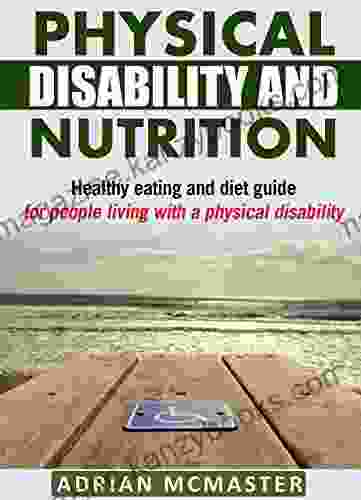
 Keith Cox
Keith CoxUnlocking the Nutritional Needs of Individuals with...
Individuals with physical disabilities...
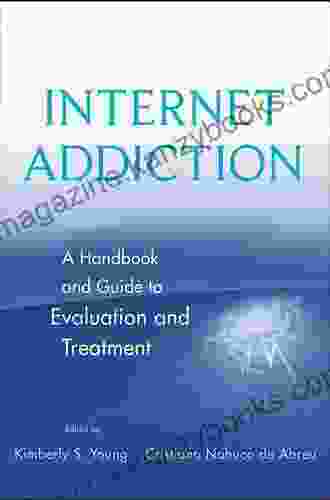
 Rubén Darío
Rubén DaríoHandbook And Guide To Evaluation And Treatment
Empowering Healthcare...

 Andy Hayes
Andy HayesUnveiling the Truth: "Garden Myths" by Robert Pavlis...
The world of gardening is often filled with a...
4.2 out of 5
| Language | : | English |
| File size | : | 332 KB |
| Text-to-Speech | : | Enabled |
| Screen Reader | : | Supported |
| Enhanced typesetting | : | Enabled |
| Word Wise | : | Enabled |
| Print length | : | 276 pages |
| Lending | : | Enabled |


